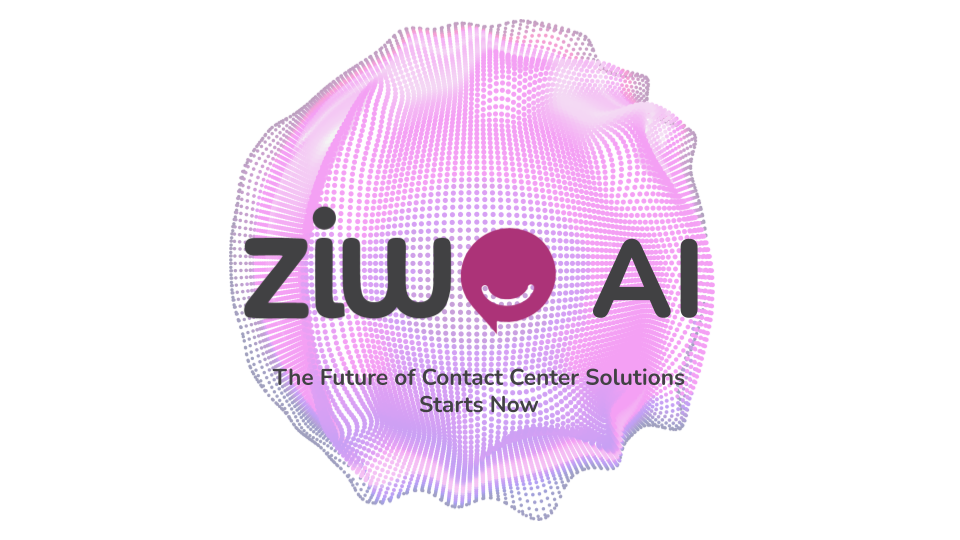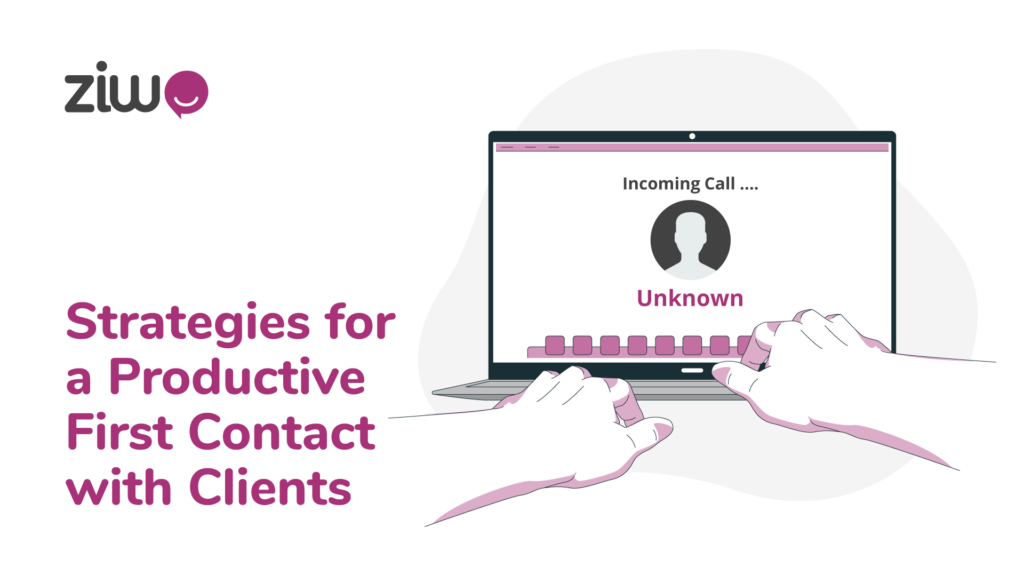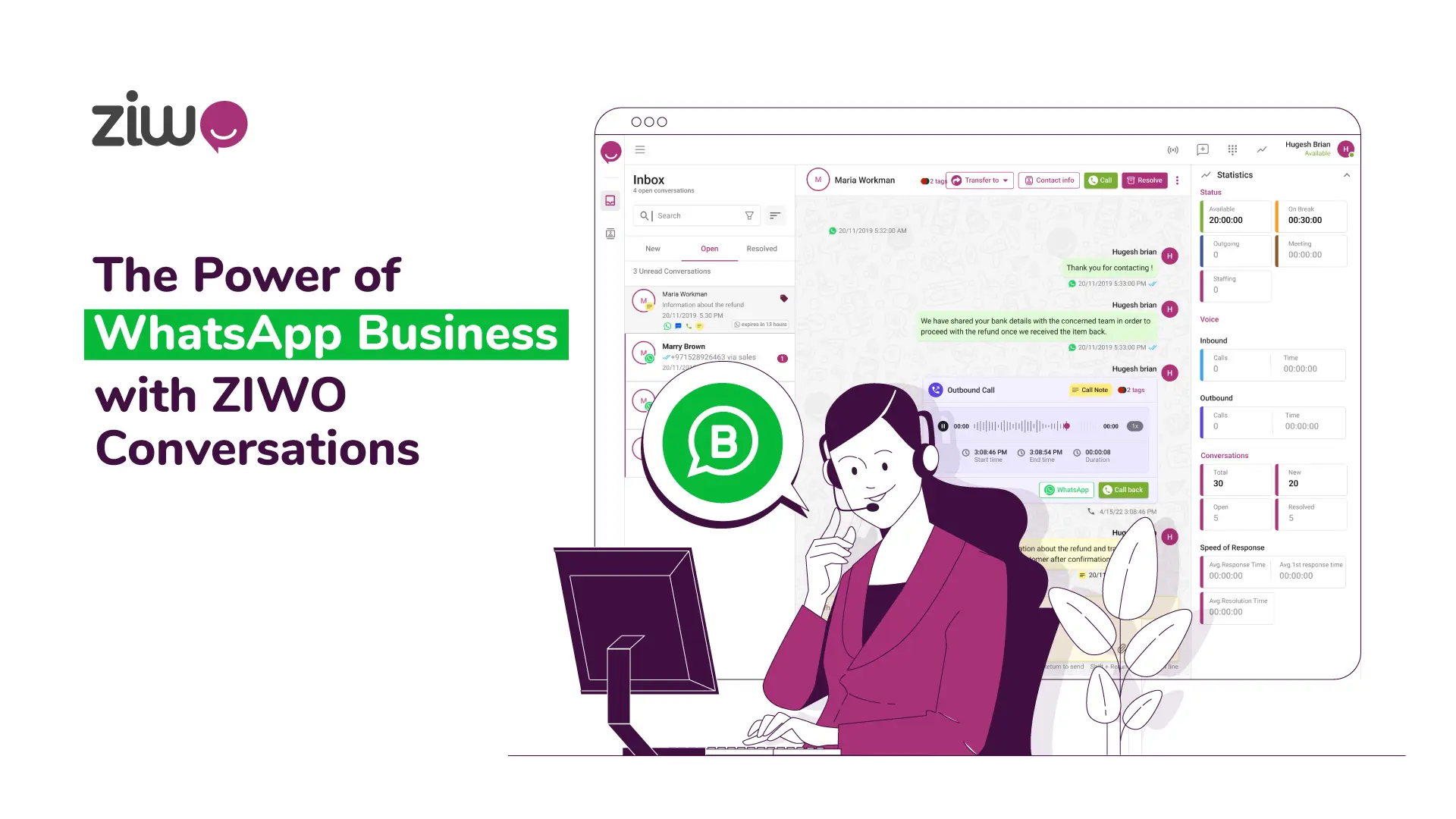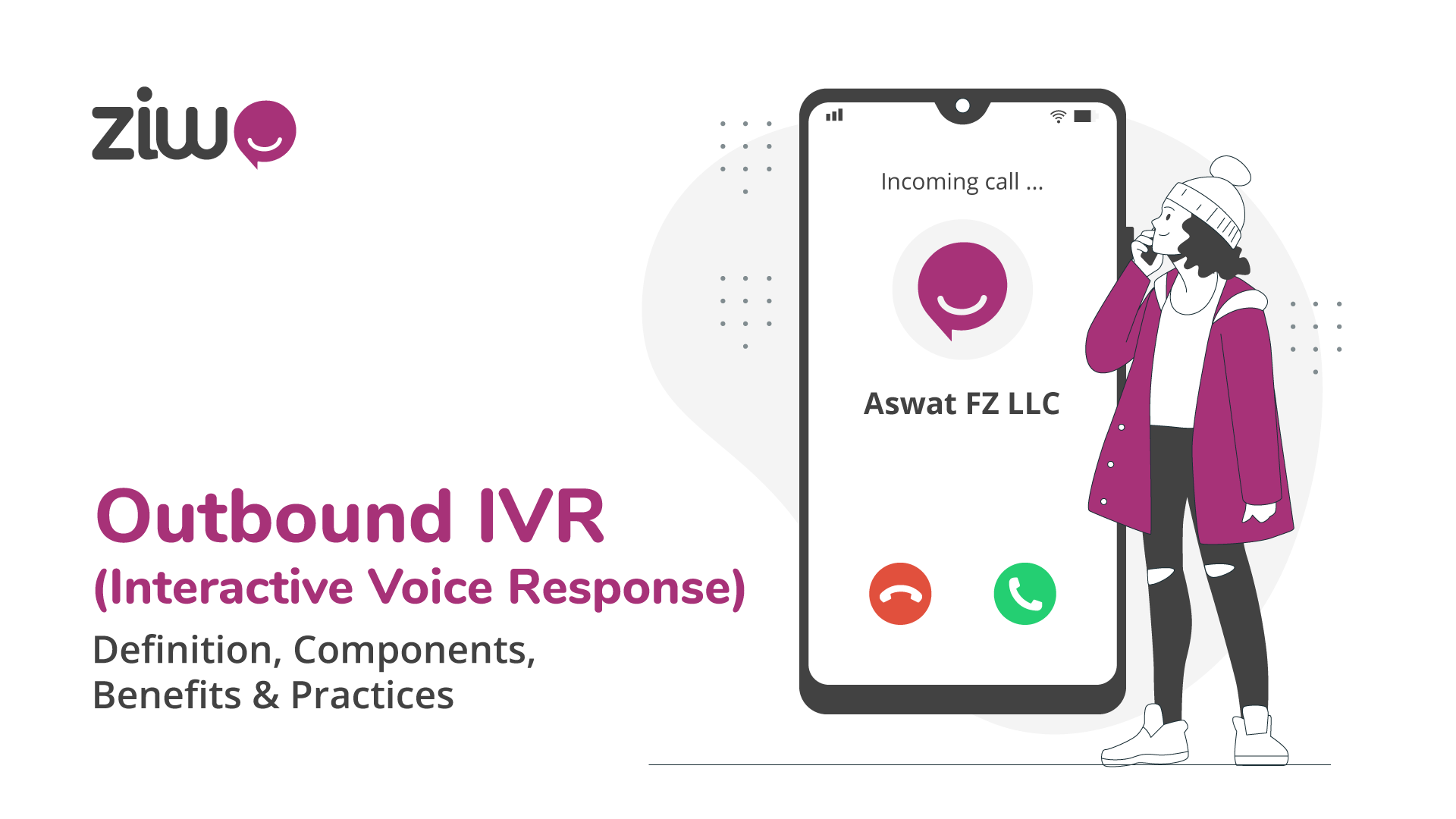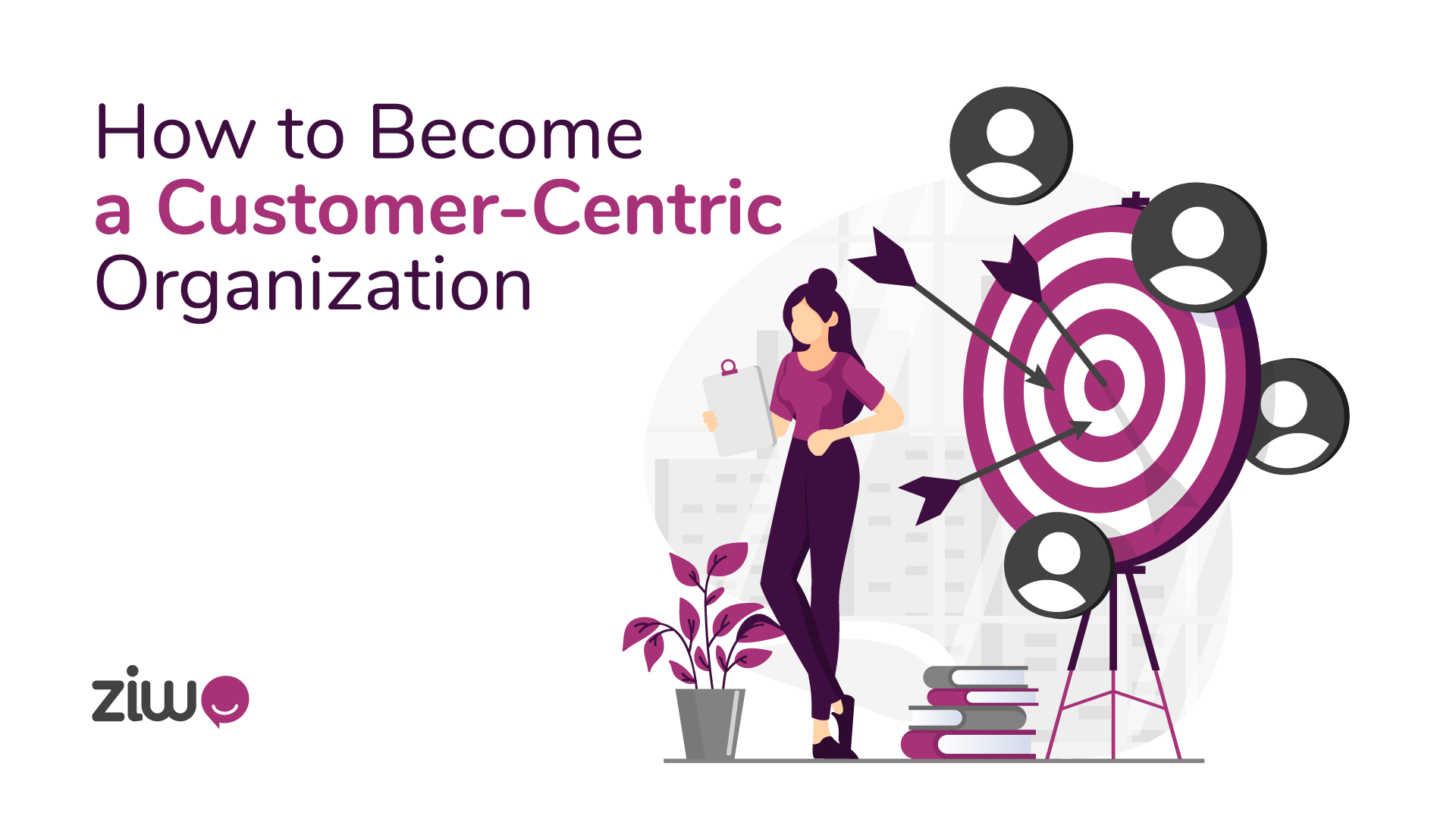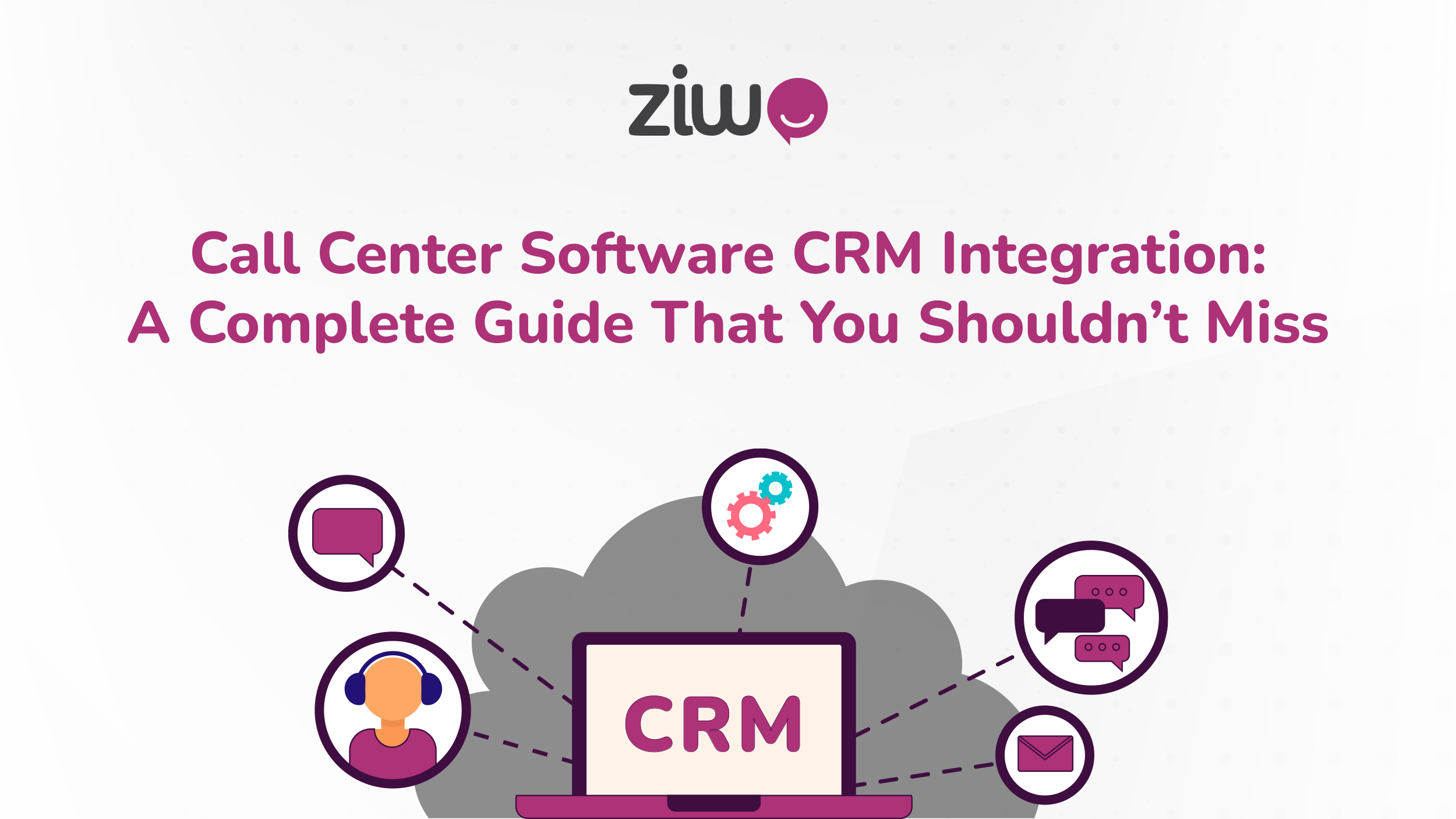
Call Center Software CRM Integration: A Complete Guide That You Shouldn’t Miss
Nurturing the relationship between your business and customers is an endless process!
As the customer retains and stays interested in the business, you know more about him. What tool could your call center software need to help you achieve that?
Yes, that’s right, It’s the CRM integration!
“Call center software CRM integration is a luxury for some businesses,” you might have once thought this way. What happens when you know it’s the most demanding integration for small and medium enterprises?
How does CRM support your cloud call center? What are the advantages of this integration to the whole business?
Read the article until the end and determine the best practices your business can benefit from using CRM integration.
The Basics of Call Center Software CRM Integration
Like any other integration, cloud call center software CRM integration aims to establish excellent coordination between the two software systems so that they act like a single unit. This strategy makes data input to any of them reflect on the other.
Whenever your call center agent receives or makes a call, the customer's complete data is displayed on the screen if it was previously stored. This comprehensive view lets your business monitor customers' activities, interactions, and behaviors in real-time, providing deep insight.
As it's an omnichannel call center software, the system does not follow the calls and purchases only. Still, it can also connect more channels the customer uses throughout his journey with the business, including social media platforms, email, website live chats, and more.
A customer relationship management integration deals with every valuable source of information that could help elevate the level of customer care and support.
The integration significantly enhances lead management efficiency, ensuring that every deal leads to better outcomes. You'll also have a comprehensive history of your loyal customers, including their interests, preferences, purchases, and demographic data, further boosting your business operations.
Key Benefits of CRM Integration in Call Center Management
Any addition or integration to the call center management software improves customer satisfaction and develops operational efficiency. However, what other benefits are influential milestones to achieving these goals where CRM integration also makes the most significant contribution?
Improved Customer Data Access
Developing a one-stop solution for data sharing and providing easy accessibility for authorized users makes CRM the excellent integration your call center software deserves. The enhanced data access feature doesn't only support you as a business owner or manager in monitoring the business agents' performance and activities; it also supports the agents themselves and helps them determine the best way to deal with and communicate with the customers based on previous preferences and activities.
Enhanced Customer Experience
Gathering customers’ data in one place allows the business to remember their previous purchases, the issues and challenges they dealt with, and the preferences that led them to make their decisions and choices. The abundance of data creates an opportunity to develop a more customer experience that features personalization. Spoken greetings, messages, product recommendations, and announcements become more focused and will 100% leave an impression on the recipients.
Streamlined Operations and Efficiency
Formulating a more homogenous team where every member knows the roles and responsibilities of others always increases productivity and implements a more productive environment. The CRM integration quickly displays the contribution of every individual in every deal, ticket, or inquiry. Streamlined operations efficiency increases, eliminating human errors and lowering operational costs.
How CRM Integration Works With Call Center Software
After understanding the link between CRM integration and other business-customer elements, it’s time to know the aspects that must be included:
1— Workflow Automation: A workflow management system that deals with the customers throughout the marketing funnel. It starts from the stage where the customer is just a lead and transfers to a potential customer, a prospect, and then eventually a customer who has made a purchase. Marketing automation tools take responsibility for all repetitive tasks related to transferring the customer from one list to another and from one status to another. This strategy achieves efficiency improvements that every business is looking for.
Also, sales agents can develop their sales pipeline via CRM based on the nature of their customers. So, follow-ups, cold calls, and deal-closing appointments are seamlessly arranged, modified, and marked as completed. The system sends notifications to the agents to remind them of any assigned task related to the customer.
Customer service will manage the tickets that illustrate the issues and complaints the customers submit through the CRM integration. Each complaint is automatically listed under the suitable category, so the technical support specialist quickly determines the dimensions of the issue he’s dealing with.
2—Data Analytics:The reports and insights that Call center software CRM integration delivers provide a 360-degree overview of your business-customer relationship meeting points. This helps you know what’s performing as you expect and giving fruitful results to your customers. You quickly learn the strengths and drawbacks of each communication platform.
3—Ready-Made APIs:This is how data synchronization should be! Features like “Click to Call,” “Screen pop-ups,” and more will support agents while performing tasks. Also, it easily connects the customer support agents using the CRM with the ticketing system that the technical engineering team uses.
Overcoming Challenges in CRM Integration
Subscribing on the right CRM might take some time as preferences change from one business to another. However, there are common challenges that every business owner and manager face when making the choice.
1- The Cost of CRM Integration
The customer relationship management integration might be a bit pricey for some companies, especially small enterprises. However, it’s a pay-as-you-go solution that depends on the features your agents and team leaders seek and the number of users who need the software. Also, the increase in sales and revenue volume makes CRM integration an excellent investment.
2- The Formation of Data Silos
Choosing the wrong integration might result in data silo formation. This makes data exist separately so each department has usable information. This prevents agents from reaching crucial data relevant to the customers and nurturing their relationships. So, you have to ensure that CRM integration does not create such silos. Some CRM software might be a one-way sync that transfers data from one software to another, but not the other way. You should choose a CRM integration that guarantees a two-way synchronization.
3- Ignorance of the CRM Usability
Selecting a cost-effective CRM solution with all the features you might dream of is every business’s calling. But, not considering how it is easy to use could lead to a fatal loss. You should know your team’s capabilities and previous experience with similar software.
If the CRM is not flexible enough and easy to comprehend, your team won’t be able to use it the way you expect, even after training and onboarding. That’s why it’s essential to consider simplicity when choosing a suitable CRM integration.
Best Practices for Successful CRM Integration
Before selecting the call center software CRM integration, you might need to follow some crucial practices, and they’re:
1- Define Goals and Objectives
What goals will drive you to use CRM to help you achieve them? Is there an urge to keep customers' data safe from loss? Increasing customer retention? Or increasing customer satisfaction? Regarding the values you're trying to drive for your business, determine the outline of the CRM you expect.
2- Determine Your Urgent Needs
Based on the goals and objectives, you can quickly determine the features you can’t give up in the CRM integration. Is it marketing? Customer support? Automating sales pipeline? According to the features you’re looking for, you can determine the type of CRM that suits your business the best. Would you choose an operational, analytical/marketing, or collaborative CRM?
3- Prepare a CRM Onboarding, Implementation, and Training Plan
Signing a contract with a provider who conducts training sessions and software onboarding is a perfect way to ensure that your agents know how to make the most of the CRM. The training will help the team learn all the shortcuts and most efficient ways to complete tasks. Also, the training will support them in categorizing customers so they can manage their relationships optimally.
4- Standardize Data Entry Process
Standardizing the data entry process is crucial. It ensures that all agents contribute to a unified system that everyone can understand, not just the agent who entered the data.
5- Perform Regular CRM Audits
Audits are crucial to avoid replicants and redundancies that might occur due to different agents entering the same data.
Case Studies: CRM Integration Success Stories
During his testimonial on using Ziwo contact center software, Faisal Bin Abdulaziz, the marketing manager at Alriyadh Travel and Tourism Company, stated that the number of messages and the response rate have increased by 20% over a quarter1. This statement proves that cloud call center software CRM integration has the most effective impact.
Faisal clarified that the solution assisted them in covering retargeting objectives. The solution helped them launch outbound message campaigns to leads where the cloud omnichannel software stores their data. This strategy creates a prospect for every new offer or product the leads might be interested in.
Future Trends in CRM and Call Center Software Integration
You'll find AI involved whenever you ask about an industry's future. Features like real-time sentiment analysis, virtual assistants, and enhanced data security will improve the customer experience, which will significantly affect customer satisfaction and retention.
Conclusion: The Strategic Advantage of CRM Integration
After explaining the call center software CRM integration and illustrating its key benefits and best practices, it’s time to select contact CRM software that has an integrated CRM or choose the contact center that can integrate the CRM you are already using to unlock your business capabilities!
Bibliographical references
1 – Customer service in travel and tourism industry:
¹ Ziwo (2023). Customer Service Trends in Travel and Tourism. Available at: https://www.linkedin.com/posts/ziwo_alriyadh-travel-tourism-customer-activity




